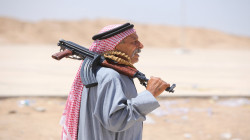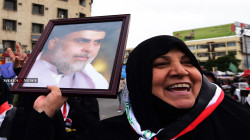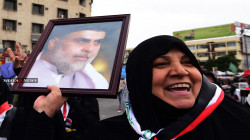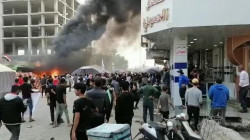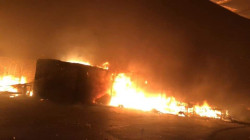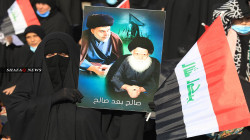The Sadrist Movement in the electoral race: Any surprises in the last meters?
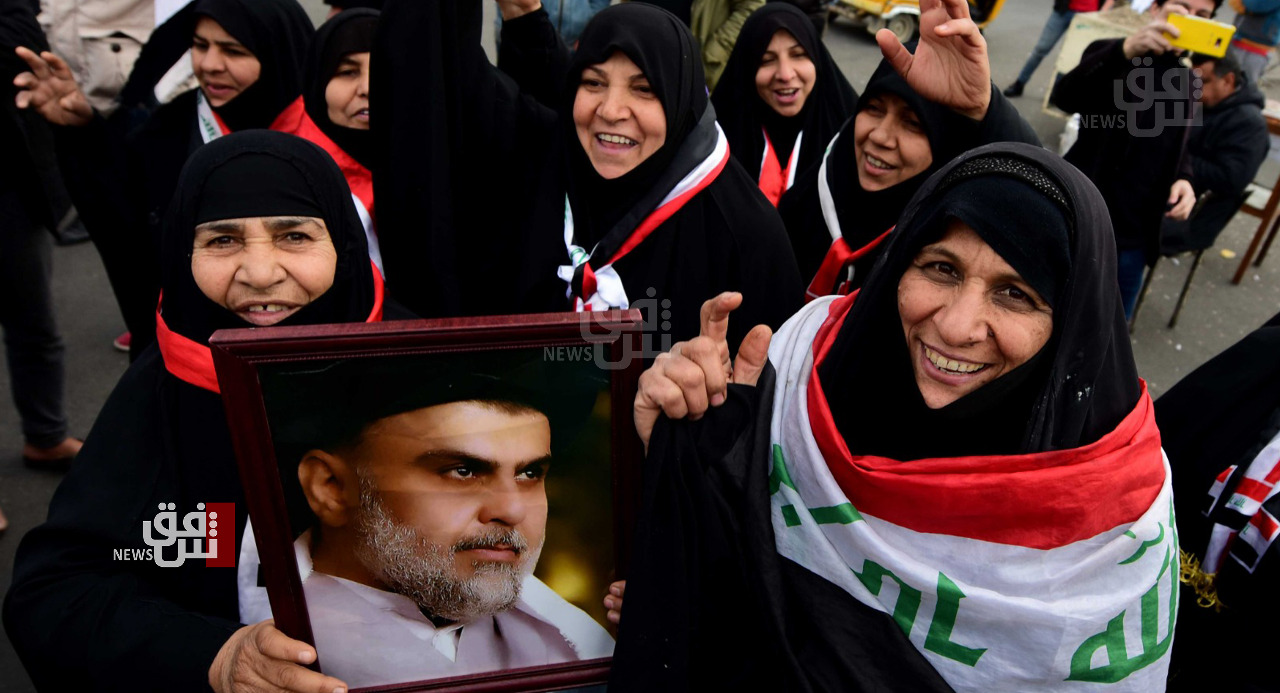
Shafaq News / It is no exaggeration to say that the Sadrist movement is among the most keenly sought by politicians and observers, not only for its parliamentary quota, which was the largest in the last elections, but also because its leader, Muqtada Al-Sadr, may still be keeping other surprises up his sleeve for the last moments.
Al-Sadr, who suddenly announced in mid-July that he was boycotting the October elections, sparked a major political whirlwind and a movement from political forces to "persuade" him to reverse his decision. These efforts resulted in his august 27 announcement of his decision to return the Sadrist Movement to the polls.
The details of the behind-the-scenes political bargaining that led to Al-Sadr's decision to return to the polls are unclear. Still, leaks from Sadrist circles hint at a move to re-support Mustafa al-Kadhimi's candidacy for a post-election government.
Al-Sadr has long been known for his ability to maneuver and bring up surprises. Observers point out that his sudden withdrawal in July "tightened the nerve" of his supporters on the Iraqi street and allowed him, albeit popularly, to distance himself from setbacks in government work, especially in terms of health and electricity (such as fires in hospitals and the bombing of power towers). This maneuver also allowed him to suggest that he was upset with the performance of those in power and that he was exempt from it.
The Sadrist Movement's leader stunned the Iraqi political landscape in 2017 ahead of the 2018 elections. He suddenly landed in the Saudi city, Jeddah, to meet With Saudi Crown Prince Mohammed bin Salman. The latter had announced his intention to escalate the confrontation with Iran and move the war to its territory only two months earlier. Al-Sadr then achieved his great victory through his "Alliance Towards Reform" parliamentary bloc.
The announcement of Al-Sadr's withdrawal in July sparked speculation that the Sadrist Movement's exit from the electoral game would allow Nouri al-Maliki's movement to apply to take advantage of the new spaces to nominate his supporters and gain votes from the "Sadrist Street". Observers also predicted that the Al-Hashd Al-Shaabi (Popular Mobilization Forces-P.M.F.), close to Iran, would benefit from the Sadrists' absence from the electoral process. Therefore, Muqtada Al-Sadr's announcement two weeks ago, retracting the decision to boycott, reshuffled the political and electoral cards, as well as calculations of many forces and parties, before and after the opening of the ballot boxes.
The Sadrist Movement is running through 100 candidates across the country's governorates in the hope of gaining enough seats to secure the presidency of the government itself, or perhaps by playing the crucial role of a "power-broker" to choose a character, which could be al-Kadhimi himself.
Informed sources told Shafaq News agency that those in charge of the Sadrist Movement's electoral campaign have adopted mechanisms that enable them to communicate with their masses and ensure that their voices are protected from manipulation.
However, sources from within the movement confirmed that their leader will surprise everyone in the end and will not allow the post of prime minister out of the Sadrists' dome, even if it is in alliance with other parties, referring to the possibility of their alliance with al-Kadhimi and the renewal of his mandate.
It is not the first time the Sadrist movement has played the "power-broker" role in resolving the political scene.
In 2010, Al-Sadr's role was decisive. He called for regional and U.S. interventions and contacts on several axes, including Iran, Syria, and Hezbollah in Lebanon, which ended with his acceptance of solving the thorny government files, Nouri al-Maliki's second term, and then the removal of several ministerial portfolios in al-Maliki's government, whose relation with him has been damaged between support, alliance, rivalry, and even the military clash that led years earlier, specifically in 2006, to Al-Sadr's trip to Iran, where he remained for a while.
Now, the Sadrist Movement is returning strongly to the elections after a boycott that did not last long, and according to some Alliance Towards Reform's deputies and candidates, they worked through a specific electoral program that is in line with the aspirations of the Iraqi street and proportion to the acceptability of the Sadrist Movement. M.P. Riad Al-Massoudi told Shafaq News Agency, "The Movement prepared for the effective participation in these elections in detail and selected specific candidates who will be the best representatives. We also put within our electoral and political program to get the government's presidency, whether it would belong to the Sadrists or not. This is certainly related to the number of seats that the Sadrist Movement will achieve as well as the possibility of convincing partners of the political process that shares the same visions and aspirations with us to form a government."
"We believe that there are direct and indirect international and regional pressures on the internal forces to interfere in the formation of the next government, as in the past, i.e., the adoption of the open-door policy, and as a movement, we believe that the decision to choose the prime minister should be an Iraqi privilege so that the candidate forces for the prime minister take responsibility for it," Al-Massoudi added.
However, Al-Massoudi denied naming specific candidates for prime minister, saying it was too early to go into the issue. He added that the Sadrist Movement has a clear vision of the standards and specifications of the next prime minister, i.e., according to a purely national standard.
"The weight of the Sadrist Movement is greater than before, as everyone understood the importance of it and its participation in the elections, as well as the need to support specific national forces that are responsible in running the country," he said, adding, "We believe in the partnership of powerful parties, not friends, for the powerful can create a solid government capable of restoring the authority of the state and maintaining its sovereign title."
Regarding the movement's intention to ally after the elections with the Kurds and the Sunni forces, Al-Massoudi stated, "we have no limits preventing us from allying with forces that share the vision of nation-building, not power-building, with us, since the latter was a key factor in destroying the country; hence our future focuses on building the state and its people."
While Al-Massoudi refused to talk about supporting al-Kadhimi's candidacy for a second term, informed sources in the Sadrist movement, who asked for anonymity, confirmed that the Movement is seeking to win the largest number of seats by adopting a new method of reducing the number of candidates as well as thoughtfully adopting their geographical distribution strategy in line with their ambitions.
The sources clarified, "The aim is to ensure that the largest number of votes are collected without losing any electoral vote and that the 100 candidates belong to the Sadrist movement exclusively, personalities who have popular weight in Sadrist strongholds, and have the support of Al-Sadr."
"Some of the anti-Sadrist parties tried with whatever possibilities they had, to sabotage the work of Sadrist officials in the service institutions (health, electricity), and the repeated scenes of burning hospitals and targeting power towers are proof enough, which prompted Al-Sadr to announce the withdrawal of his movement. However, when the purpose of those incidents became clear, the national forces wishing to build the state realized the importance of the Sadrist Movement's participation in the elections, and hence the return came. Therefore, we believe the Sadrist Street has not been affected and will not change the fixed electoral balancing act. Also, the ballot boxes will reveal the weight of the Movement in the street," the Sadrist sources pointed.
Al-Sadr announced on August 27 that there was a reform paper received from political forces that sought to persuade them to back down from boycotting the elections, saying, "This paper came per our aspirations," while calling for a stand in the parliament to implement the terms of the reform paper, "A return to the electoral project is acceptable, and we will run in the elections with determination to save Iraq from corruption, occupation, dependency, and normalization. The interest required us to run in a million-man election."
Al-Kadhimi was quick to welcome Al-Sadr's return to the field of running in the elections, tweeting, "We welcome the return of the Sadrist Movement to participate in the elections and thank all the political and popular forces and leaders that have made efforts to prompt its return," calling on all boycotters to take "similar positions, and we hope for the broad participation of our people in the elections on the path of change."
"The techniques instructed by the PM, which will ensure tight monitoring of all polling stations, will prevent fraud, along with another measure that will be later announced, which in itself is an effort to be counted in favor of the prime minister and his efforts to ensure the elections' success and integrity to build the state," the sources said.
"Al-Kadhimi is expected to enter into an alliance that will contribute to the renewal of his mandate, particularly since he has local and international support as well as the support of the most important players in the political scene," the sources continued.
Safaa al-Tamimi, a candidate for the Sadrist Movement, told Shafaq News agency, "The Movement has electoral mechanisms that will enable it to preserve the rights of its audience to choose whom they represent under the requirements of the stage, including the adoption of modern technology to educate their audiences to choose their candidates without influence or pressure. As a result, the Movement may achieve more results than it has achieved during the previous elections."
Al-Sadr-backed Alliance Towards Reform, bringing together the Sadrists, the Communist Party, and technocrats, led the last parliamentary elections in 2018, with 54 of the 329 seats. Hadi al-Amiri's al-Fatah Alliance, which includes the P.M.F. factions, finished second with 47 seats, while Haider al-Abadi's Victory Alliance finished third with 42 seats. Al-Maliki's State of Law Coalition won 26 seats, Masoud Barzani's Kurdistan Democratic Party (K.D.P.) won 25, and Iyad Allawi's Iraqi National Accord won 21 seats.
